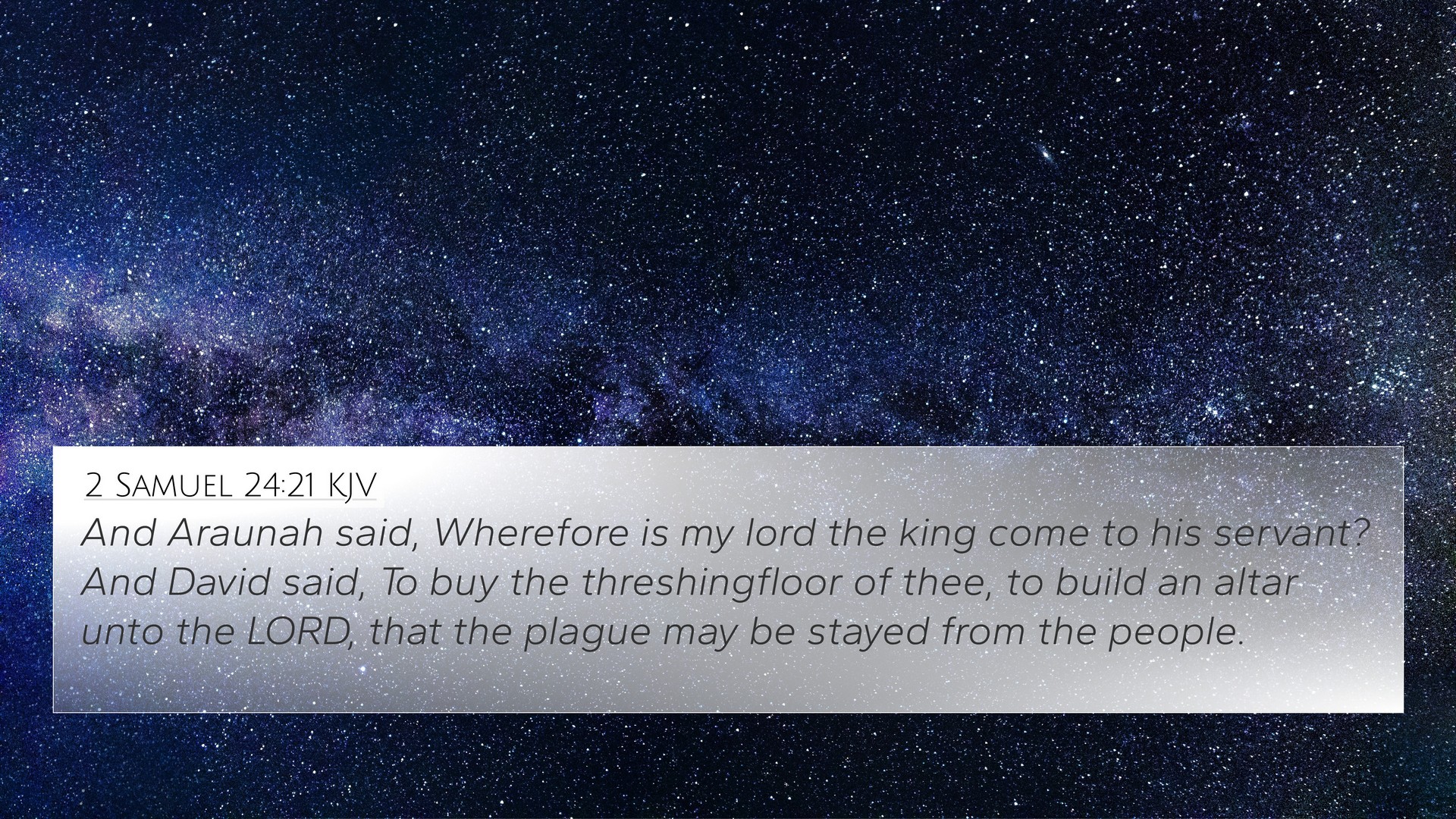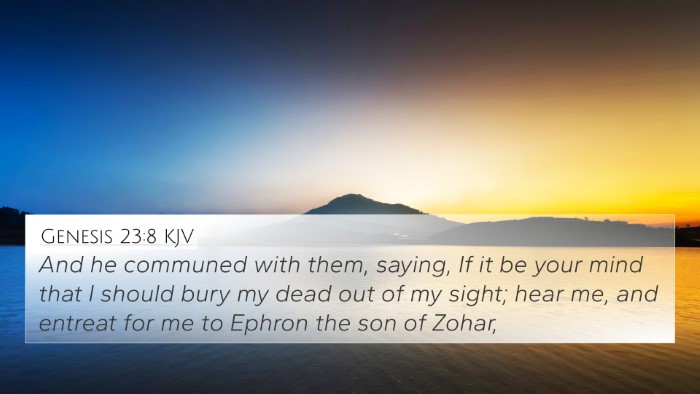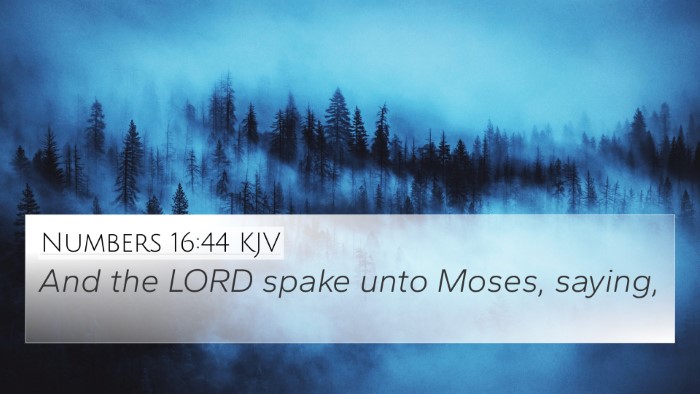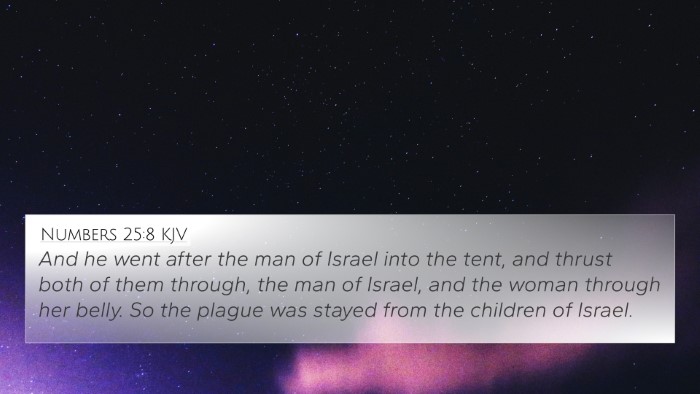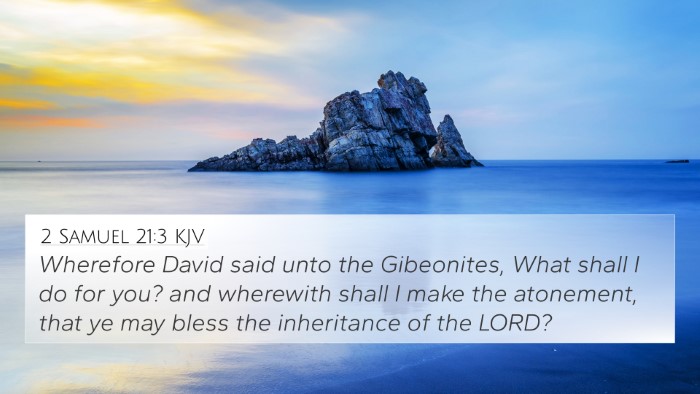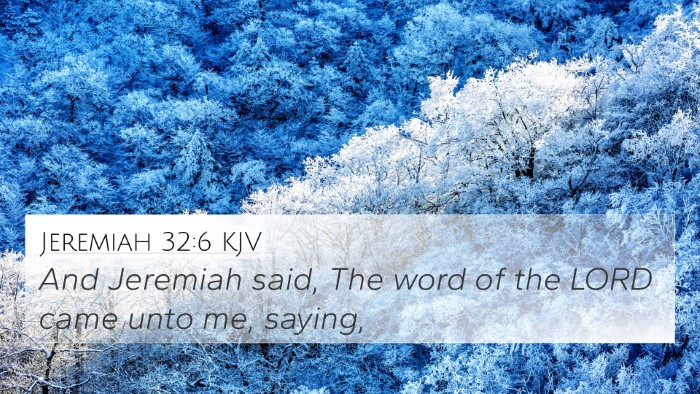Understanding 2 Samuel 24:21
2 Samuel 24:21 is a pivotal verse in the narrative of King David's reign, reflecting not only his leadership but also his relationship with God during a time of crisis. The verse reads:
"And Aravnah said, Wherefore is my lord the king come to his servant? And David said, To buy the threshing floor of thee, to build an altar unto the Lord, that the plague may be stayed from the people."
Summary of Insights
This verse captures a crucial moment where David seeks to offer sacrifices to appease God and halt a plague affecting his people. The account underscores the importance of atonement and sacrifice in approaching God, a recurring theme throughout the Bible.
Key Themes and Interpretations
- Atonement: David's act of purchasing the threshing floor signifies a personal responsibility for the sins that led to the plague. As noted by Clarke, this act illustrates a leader taking accountability.
- Obedience and Worship: Through this effort to build an altar, David emphasizes the necessity of worshiping God in accordance with divine instruction (Henry). The altar represents a place of reconciliation.
- God's Mercy: The act of David seeking an altar portrays God's readiness to forgive, a core element of biblical theology (Barnes).
Cross-References
The understanding of 2 Samuel 24:21 can be deepened by examining related scriptures that illustrate similar themes of sacrifice, accountability, and divine mercy:
- 1 Chronicles 21:26: A parallel account where David builds the altar and offers sacrifices following a similar divine directive.
- Leviticus 4:26: The instructions regarding sin offerings, highlighting the importance of sin sacrifice in the life of believers.
- Romans 12:1: Paul speaks of presenting our bodies as living sacrifices, echoing the themes of atonement found in the Old Testament.
- Hebrews 9:22: Establishes the principle of blood for atonement, which finds its roots in the sacrificial system.
- Exodus 30:12-16: Instructions on how to conduct a census, reflecting the issues of accountability as demonstrated in David's actions.
- Genesis 4:3-5: A contrast between Abel's acceptable sacrifice and Cain's offering, emphasizing the need for righteous offerings.
- Psalm 51:17: "The sacrifices of God are a broken spirit," illustrating God’s desire for sincere worship, not just ritual.
- Matthew 5:24: The commitment to reconciliation before offering gifts, paralleling David's effort to remedy the spiritual breach with God.
Comparative Analysis
Exploring the connections between these verses reveals a thematic lineage through the scriptures. Each reference underscores the necessity of acknowledging sin, understanding God’s mercy, and making personal sacrifices as acts of worship:
- The link between Old and New Testament teachings emphasizes that God desires heartfelt obedience above mere ritual.
- The principles of sacrifice remain prominent, culminating in the ultimate sacrifice of Christ as the fulfillment of these themes.
Applications for Study
For those engaged in Bible study or sermon preparation, 2 Samuel 24:21 offers a rich context for understanding the essentials of repentance and recovery in our relationship with God. Here are some tools and approaches for deeper exploration:
- Bible Concordance: Utilize a concordance to identify instances of sacrifice and worship throughout Scripture.
- Cross-Reference Guide: Compile a list of relevant verses that explore the themes of atonement and divine mercy.
- Comparative Bible Study: Engage in comparative studies between the Old and New Testament’s sacrificial themes using the provided references.
Conclusion
2 Samuel 24:21 stands as a poignant reminder of the relationship between sin, sacrifice, and the grace of God. By utilizing tools for Bible cross-referencing and examining the connections between scripture, believers can gain a fuller understanding of God's redemptive plan throughout history. This verse encourages personal accountability and illustrates how sincere worship can lead to restoration and divine favor.
